Terence Davies
Nacimiento : 1945-11-10, Liverpool, England, UK
Historia
Terence Davies (born 10 November 1945) is an English writer-director and former novelist. As a filmmaker, Davies is noted for his recurring themes of emotional (and sometimes physical) endurance, the influence of memory on everyday life and the potentially crippling effects of dogmatic religiosity on the emotional life of individuals and societies. Stylistically, Davies' works are notable for their symmetrical compositions, "symphonic" structure and measured pace.
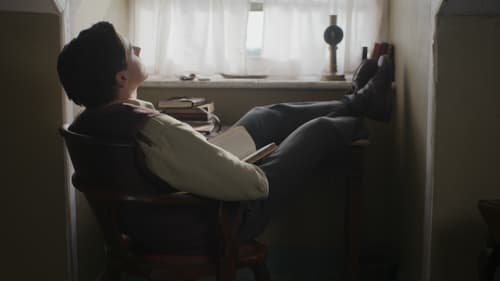
Writer
Siegfried Sassoon fue un hombre complejo que sobrevivió a los terrores de combatir en la I Guerra Mundial y fue condecorado por su valentía, pero a su regreso se convirtió en un firme crítico de la continuación de la guerra por parte de su gobierno. Su poesía se inspiró en sus experiencias en el frente occidental y terminó siendo uno de los principales poetas de guerra de la época. Idolatrado por aristócratas y estrellas del mundo literario y escénico londinense, mantuvo relaciones con varios hombres mientras intentaba aceptar su homosexualidad. Al mismo tiempo, roto por el terror de la guerra, hizo de su viaje vital una búsqueda de la salvación, tratando de hallarla en la conformidad del matrimonio y la religión.

Director
Siegfried Sassoon fue un hombre complejo que sobrevivió a los terrores de combatir en la I Guerra Mundial y fue condecorado por su valentía, pero a su regreso se convirtió en un firme crítico de la continuación de la guerra por parte de su gobierno. Su poesía se inspiró en sus experiencias en el frente occidental y terminó siendo uno de los principales poetas de guerra de la época. Idolatrado por aristócratas y estrellas del mundo literario y escénico londinense, mantuvo relaciones con varios hombres mientras intentaba aceptar su homosexualidad. Al mismo tiempo, roto por el terror de la guerra, hizo de su viaje vital una búsqueda de la salvación, tratando de hallarla en la conformidad del matrimonio y la religión.

Narrator (voice)
An elegy to time and life, condensing Terence Davies' profoundly humane poetics into little more than one minute, enveloping the viewer in an atmosphere of light and (Davies’ own) words.

Writer
An elegy to time and life, condensing Terence Davies' profoundly humane poetics into little more than one minute, enveloping the viewer in an atmosphere of light and (Davies’ own) words.

Director
An elegy to time and life, condensing Terence Davies' profoundly humane poetics into little more than one minute, enveloping the viewer in an atmosphere of light and (Davies’ own) words.

Program focuses on the lasting appeal and cinematic brilliance of The Ladykillers. Included in it are clips from interviews with broadcaster and author Stuart Maconie, film editor Catherine Shoard, actor and writer Reece Shearsmith, and author Ronald Harwood, amongst others.
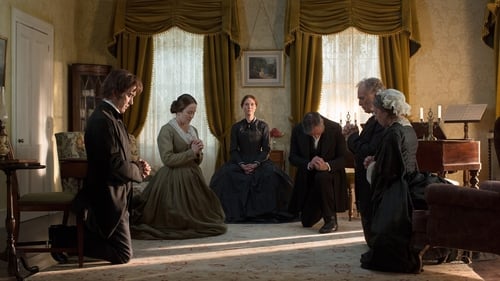
Writer
Biopic de la obra y vida de la gran Emily Dickinson, una poetisa que paso la mayor parte de su vida en casa de sus padres en Amherst, Massachusetts. La mansión en la que vivió sirve de telón de fondo al retrato de una mujer nada convencional de la que se sabe muy poco. Nacida en 1803, fue considerada una niña con talento, pero un trauma emocional la obligó a dejar los estudios. A partir de ese momento, se retiró de la sociedad y empezó a escribir poemas. A pesar de su vida solitaria, su obra transporta a sus lectores a su apasionante mundo. Esta es la historia de la poeta estadounidense Emily Dickinson, desde su infancia hasta convertirse en la famosa artista que conocemos.

Director
Biopic de la obra y vida de la gran Emily Dickinson, una poetisa que paso la mayor parte de su vida en casa de sus padres en Amherst, Massachusetts. La mansión en la que vivió sirve de telón de fondo al retrato de una mujer nada convencional de la que se sabe muy poco. Nacida en 1803, fue considerada una niña con talento, pero un trauma emocional la obligó a dejar los estudios. A partir de ese momento, se retiró de la sociedad y empezó a escribir poemas. A pesar de su vida solitaria, su obra transporta a sus lectores a su apasionante mundo. Esta es la historia de la poeta estadounidense Emily Dickinson, desde su infancia hasta convertirse en la famosa artista que conocemos.
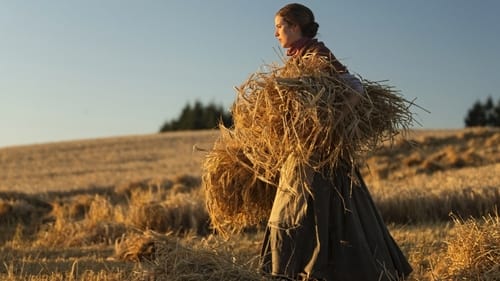
Adaptation
Un relato épico e intimista sobre la esperanza, la tragedia y el amor ambientado a principios de la Gran Guerra (1914-1918). Se trata de una adaptación de la novela del autor escocés Lewis Grassic Gibbon.

Writer
Un relato épico e intimista sobre la esperanza, la tragedia y el amor ambientado a principios de la Gran Guerra (1914-1918). Se trata de una adaptación de la novela del autor escocés Lewis Grassic Gibbon.

Director
Un relato épico e intimista sobre la esperanza, la tragedia y el amor ambientado a principios de la Gran Guerra (1914-1918). Se trata de una adaptación de la novela del autor escocés Lewis Grassic Gibbon.
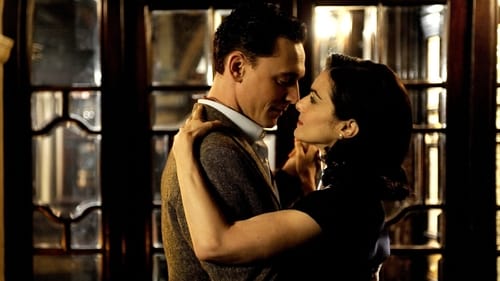
Writer
En la puritana sociedad londinense de los años 50, Hester Collyer (Rachel Weisz), la esposa de un juez del Tribunal Supremo Sir William Collyer (Simon Russell Beale), lleva una vida privilegiada. Pero todo cambia cuando, para asombro de todos, decide dejar a su marido para irse a vivir con Freddie Page (Tom Hiddleston), un joven y apuesto ex piloto de la RAF del que ha caído profundamente enamorada.

Director
En la puritana sociedad londinense de los años 50, Hester Collyer (Rachel Weisz), la esposa de un juez del Tribunal Supremo Sir William Collyer (Simon Russell Beale), lleva una vida privilegiada. Pero todo cambia cuando, para asombro de todos, decide dejar a su marido para irse a vivir con Freddie Page (Tom Hiddleston), un joven y apuesto ex piloto de la RAF del que ha caído profundamente enamorada.

Narrator (voice)
A heart-stirring meditation on time, memory and mortality, “Of Time and the City” is Terence Davies’ poetic, conflicted ode to his birthplace of Liverpool, England. The visual content of the film consists largely of archival clips of the city from the 1940s to the 1960s, their nostalgic charm darkened by accompanying music and the counterpoint of Davies’ dry, at times dyspeptic, voice-over narration. His voice thickens with emotion as he recalls the delights of juvenile movie-going or the ritual of a holiday trip to New Brighton, across the River Mersey, and hardens with contempt when he turns his gaze on the hoopla surrounding Queen Elizabeth’s coronation in 1953. The film is a powerful evocation of the director's youth in post-war Britain and a reflection on how his home city has changed over the years.

Writer
A heart-stirring meditation on time, memory and mortality, “Of Time and the City” is Terence Davies’ poetic, conflicted ode to his birthplace of Liverpool, England. The visual content of the film consists largely of archival clips of the city from the 1940s to the 1960s, their nostalgic charm darkened by accompanying music and the counterpoint of Davies’ dry, at times dyspeptic, voice-over narration. His voice thickens with emotion as he recalls the delights of juvenile movie-going or the ritual of a holiday trip to New Brighton, across the River Mersey, and hardens with contempt when he turns his gaze on the hoopla surrounding Queen Elizabeth’s coronation in 1953. The film is a powerful evocation of the director's youth in post-war Britain and a reflection on how his home city has changed over the years.

Director
A heart-stirring meditation on time, memory and mortality, “Of Time and the City” is Terence Davies’ poetic, conflicted ode to his birthplace of Liverpool, England. The visual content of the film consists largely of archival clips of the city from the 1940s to the 1960s, their nostalgic charm darkened by accompanying music and the counterpoint of Davies’ dry, at times dyspeptic, voice-over narration. His voice thickens with emotion as he recalls the delights of juvenile movie-going or the ritual of a holiday trip to New Brighton, across the River Mersey, and hardens with contempt when he turns his gaze on the hoopla surrounding Queen Elizabeth’s coronation in 1953. The film is a powerful evocation of the director's youth in post-war Britain and a reflection on how his home city has changed over the years.

Self
Doris Day has often been dismissed as an actress and overlooked as a singer, despite career highs such as Calamity Jane and Pillow Talk. Covering her early years as a band singer, and her troubled private life, this documentary re-evaluates one of the screen's most enduring legends.
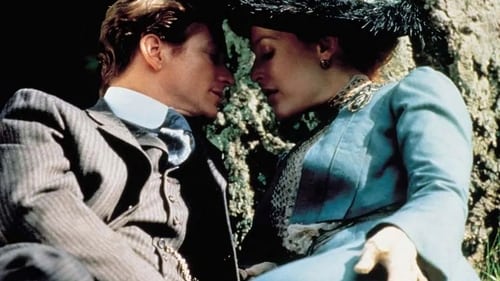
Writer
Lily Bart es una conocida belleza que hace furor entre los caballeros de la alta sociedad, pero acaba dándose cuenta de la precariedad de su posición cuando sus encantos empiezan a provocar la envidia ajena. Indecisa entre sus sentimientos y lo que le dicta la razón, Lily siempre hace lo que debe en los peores momentos. La búsqueda de un marido rico que cumpla con las expectativas sociales, no sólo le hará perder la posibilidad de un amor verdadero con Lawrence Selden, sino que la llevará a ser acusada falsamente de mantener una relación con un hombre casado. El escándalo hará que sus amigos y la sociedad la repudien.

Director
Lily Bart es una conocida belleza que hace furor entre los caballeros de la alta sociedad, pero acaba dándose cuenta de la precariedad de su posición cuando sus encantos empiezan a provocar la envidia ajena. Indecisa entre sus sentimientos y lo que le dicta la razón, Lily siempre hace lo que debe en los peores momentos. La búsqueda de un marido rico que cumpla con las expectativas sociales, no sólo le hará perder la posibilidad de un amor verdadero con Lawrence Selden, sino que la llevará a ser acusada falsamente de mantener una relación con un hombre casado. El escándalo hará que sus amigos y la sociedad la repudien.
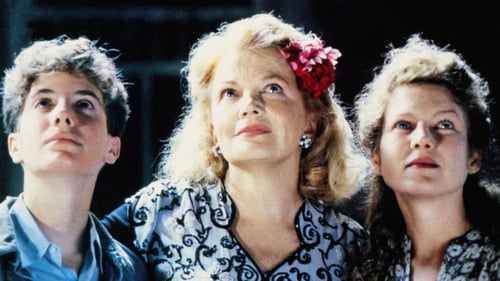
Screenplay
Mientras viaja en tren, un joven piensa en su vida y en su ostentosa tía con la que pasó algunas temporadas. Son los recuerdos de un muchacho campesino de los años 40.

Director
Mientras viaja en tren, un joven piensa en su vida y en su ostentosa tía con la que pasó algunas temporadas. Son los recuerdos de un muchacho campesino de los años 40.
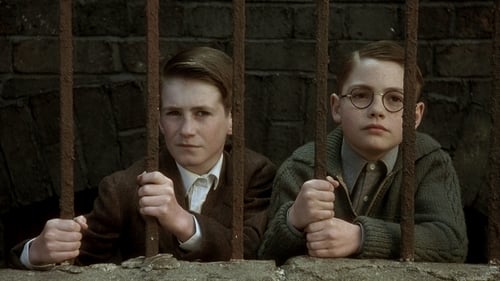
Writer
Liverpool, 1956. Bud es un muchacho de doce años, sensible, tímido e introvertido que pertenece a una familia de clase trabajadora. La estrecha relación que mantiene con su madre y, especialmente, su pasión por el cine, le ayudan a afrontar el ambiente represor y asfixiante del colegio.

Director
Liverpool, 1956. Bud es un muchacho de doce años, sensible, tímido e introvertido que pertenece a una familia de clase trabajadora. La estrecha relación que mantiene con su madre y, especialmente, su pasión por el cine, le ayudan a afrontar el ambiente represor y asfixiante del colegio.

Interviewee
Television documentary about British film director Terence Davies and his film "The Long Day Closes."
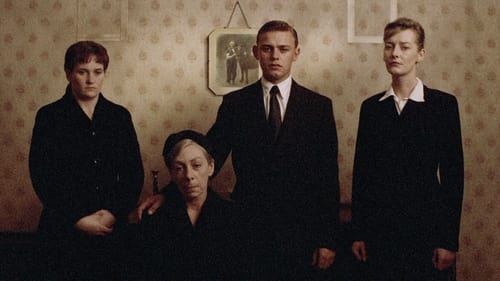
Writer
Oyendo o interpretando una de las muchas canciones que han formado parte de sus vidas, Maisie, Eileen, Tony y la madre de los tres, recuerdan a su fallecido padre y esposo, alcohólico, déspota y maltratador y cómo la experiencia vivida junto a él marcó sus destinos y sus sentimientos hacia los demás.

Director
Oyendo o interpretando una de las muchas canciones que han formado parte de sus vidas, Maisie, Eileen, Tony y la madre de los tres, recuerdan a su fallecido padre y esposo, alcohólico, déspota y maltratador y cómo la experiencia vivida junto a él marcó sus destinos y sus sentimientos hacia los demás.
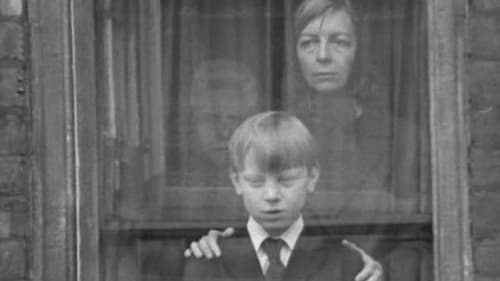
Writer
Trilogía compuesta por los tres primeros cortometrajes de Davies ("Children" (1976), "Madonna and Child" (1980) y "Death and Transfiguration" (1983)), que corresponden a distintas etapas de la vida de Robert Tucker: su opresiva infancia, marcada por los malos tratos de su padre y de sus compañeros de colegio; su madurez como gris oficinista atormentado por su homosexualidad, siempre al lado de su madre; y sus últimos días, en los que se ve asaltado por dolorosos recuerdos del pasado.

Director
Trilogía compuesta por los tres primeros cortometrajes de Davies ("Children" (1976), "Madonna and Child" (1980) y "Death and Transfiguration" (1983)), que corresponden a distintas etapas de la vida de Robert Tucker: su opresiva infancia, marcada por los malos tratos de su padre y de sus compañeros de colegio; su madurez como gris oficinista atormentado por su homosexualidad, siempre al lado de su madre; y sus últimos días, en los que se ve asaltado por dolorosos recuerdos del pasado.
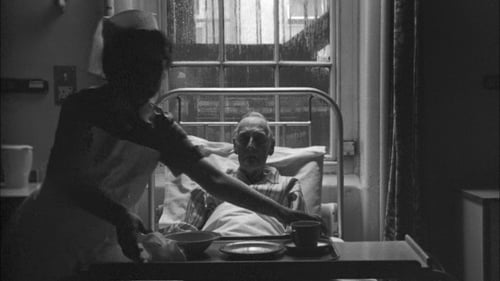
Writer
In sepia tones, the film moves back and forth among three periods in Robert Tucker's life: he's an old man, near death, in a nursing home at Christmas time; he's in middle age caring for his cheerful but dying mother; he's a lad at Catholic school, practicing his catechism, going to confession for the first time, receiving the Eucharist, surrounded by the singing of a children's choir. In middle age, he looks through his scrapbook of photographs of muscular men; he recalls lovers and his mother's cremation. A nurse sits beside him on his last night; in his last breath, he reaches forward and back.

Director
In sepia tones, the film moves back and forth among three periods in Robert Tucker's life: he's an old man, near death, in a nursing home at Christmas time; he's in middle age caring for his cheerful but dying mother; he's a lad at Catholic school, practicing his catechism, going to confession for the first time, receiving the Eucharist, surrounded by the singing of a children's choir. In middle age, he looks through his scrapbook of photographs of muscular men; he recalls lovers and his mother's cremation. A nurse sits beside him on his last night; in his last breath, he reaches forward and back.
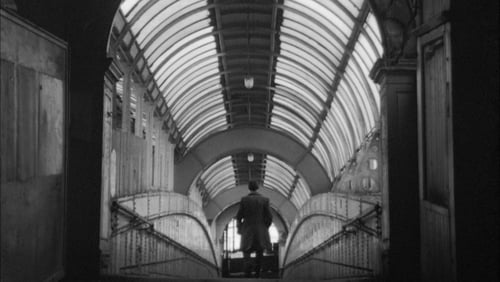
Writer
The second part of Terence Davies' trilogy revolving around Liverpudlian Robert Tucker, focusing on the character's efforts in middle-age to come to terms with his homosexuality.

Director
The second part of Terence Davies' trilogy revolving around Liverpudlian Robert Tucker, focusing on the character's efforts in middle-age to come to terms with his homosexuality.
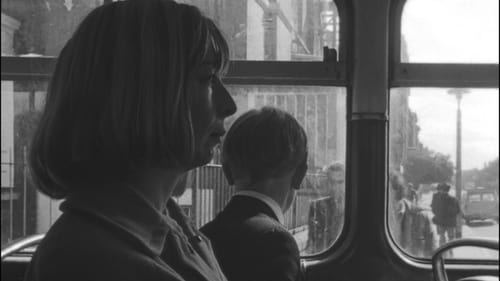
Writer
Robert Tucker, a young gay man who is almost without affect, sits in various waiting rooms. As he sits, he recalls events from the year of his childhood when his father dies. He's ten or eleven that year, picked on by bullies at the Catholic school he attends. He seems friendless. At home, his mother is quiet, his father is ill and angry. After his father's death, there's a wake, the coffin arrives, the body is removed. The lad grieves, alone.

Director
Robert Tucker, a young gay man who is almost without affect, sits in various waiting rooms. As he sits, he recalls events from the year of his childhood when his father dies. He's ten or eleven that year, picked on by bullies at the Catholic school he attends. He seems friendless. At home, his mother is quiet, his father is ill and angry. After his father's death, there's a wake, the coffin arrives, the body is removed. The lad grieves, alone.

Screenplay
Christine looks after her ailing mother and toils in a provincial Austrian post office in the years just after the Great War. One afternoon, as she is dozing among the official forms and stamps, a telegraph arrives addressed to her. It is from her rich aunt, who lives in America and writes requesting that Christine join her and her husband in a Swiss Alpine resort. After a dizzying train ride, Christine finds herself at the top of the world, enjoying a life of privilege that she had never imagined. But Christine’s aunt drops her as abruptly as she picked her up, and soon the young woman is back at the provincial post office, consumed with disappointment and bitterness. Then she meets Ferdinand, a wounded but eloquent war veteran who is able to give voice to the disaffection of his generation. Christine’s and Ferdinand’s lives spiral downward, before Ferdinand comes up with a plan which will be either their salvation or their doom.

Director
Christine looks after her ailing mother and toils in a provincial Austrian post office in the years just after the Great War. One afternoon, as she is dozing among the official forms and stamps, a telegraph arrives addressed to her. It is from her rich aunt, who lives in America and writes requesting that Christine join her and her husband in a Swiss Alpine resort. After a dizzying train ride, Christine finds herself at the top of the world, enjoying a life of privilege that she had never imagined. But Christine’s aunt drops her as abruptly as she picked her up, and soon the young woman is back at the provincial post office, consumed with disappointment and bitterness. Then she meets Ferdinand, a wounded but eloquent war veteran who is able to give voice to the disaffection of his generation. Christine’s and Ferdinand’s lives spiral downward, before Ferdinand comes up with a plan which will be either their salvation or their doom.














